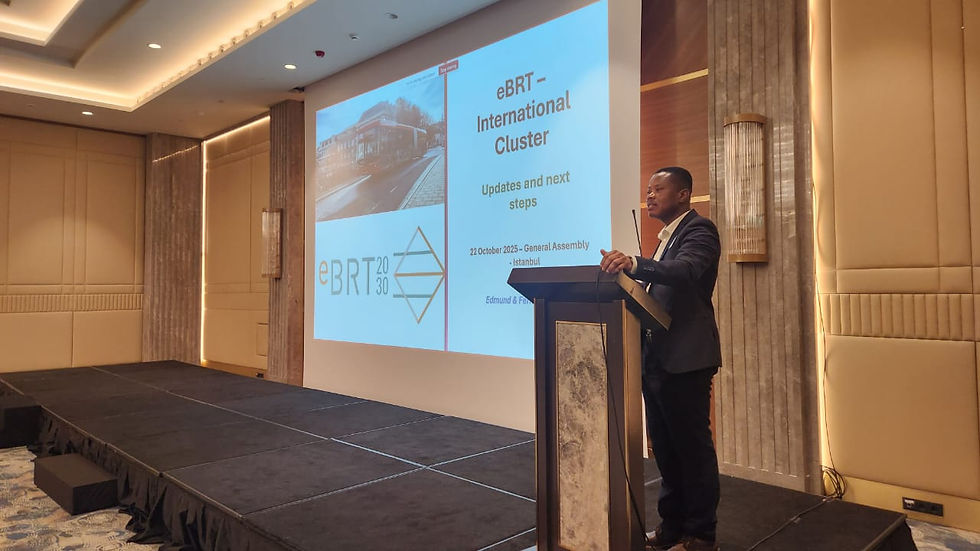Why people must be at the heart of sustainable urban mobility
- Thamires Pecis

- Nov 7, 2025
- 2 min read
When we talk about mobility, we often think of cars, motorcycles, and buses. And when we mention sustainable mobility, electric vehicles like e-bikes and eBRTs, transport networks, data, and charging points usually come to mind.And that’s all true and there’s nothing wrong with that.
But what if we think about who uses these systems? Cities are made of people, the ones taking their children to school, waiting for the bus after a long day, crossing busy streets carrying bags and dreams.
Without people, there is no mobility, and certainly no sustainable mobility. Every journey tells a story. And sometimes, those stories reveal how much a city truly cares or how much it still needs to learn to care.

Beyond movement
For decades, we have built cities around cars and speed. But perhaps the most important question isn’t how fast we move, but how we feel while moving.
A city that cares doesn’t only worry about getting you somewhere, it cares about how you get there. It’s the difference between rushing through traffic and walking down a welcoming street, where light, space, safety, and comfort matter just as much as technology.
Because mobility isn’t only about reaching destinations. It’s about belonging to the city we live in.
A mission centred on people
UEMI works to make electric mobility accessible, reliable, and fair for everyone. We imagine cities where sustainable transport is not a privilegie, it’s a shared right. Where women, youth, and marginalised communities don’t just adapt to systems, but help design them.
At the heart of what we do is a simple belief: mobility should serve people, not the other way around. We collaborate with cities and partners around the world to create practical solutions shaped by real needs, solutions that bring social equity, climate action, and everyday life onto the same path.
This vision comes to life through initiatives such as MobiliseHER, which supports women, children, erderly and those with limited mobility in India; BOOST, which drives economic inclusion through electric mobility in African countries; E-Moviliza, which builds local capacity and safety for sustainable transport in Latin America; and eBRT2030, which helps cities redesign public transport systems to be cleaner and more accessible.
Listening before planning
Cities that care start by listening. They ask simple questions: Who feels safe? Who doesn’t? Who has a voice when our streets are being designed?
Empathy might not sound like an urban planning tool, but it should be.Because when people are heard, transport stops being just infrastructure, it becomes connection.
At UEMI, we believe mobility starts with care. Discover how our projects help cities put people at the center of decision-making.




Comments